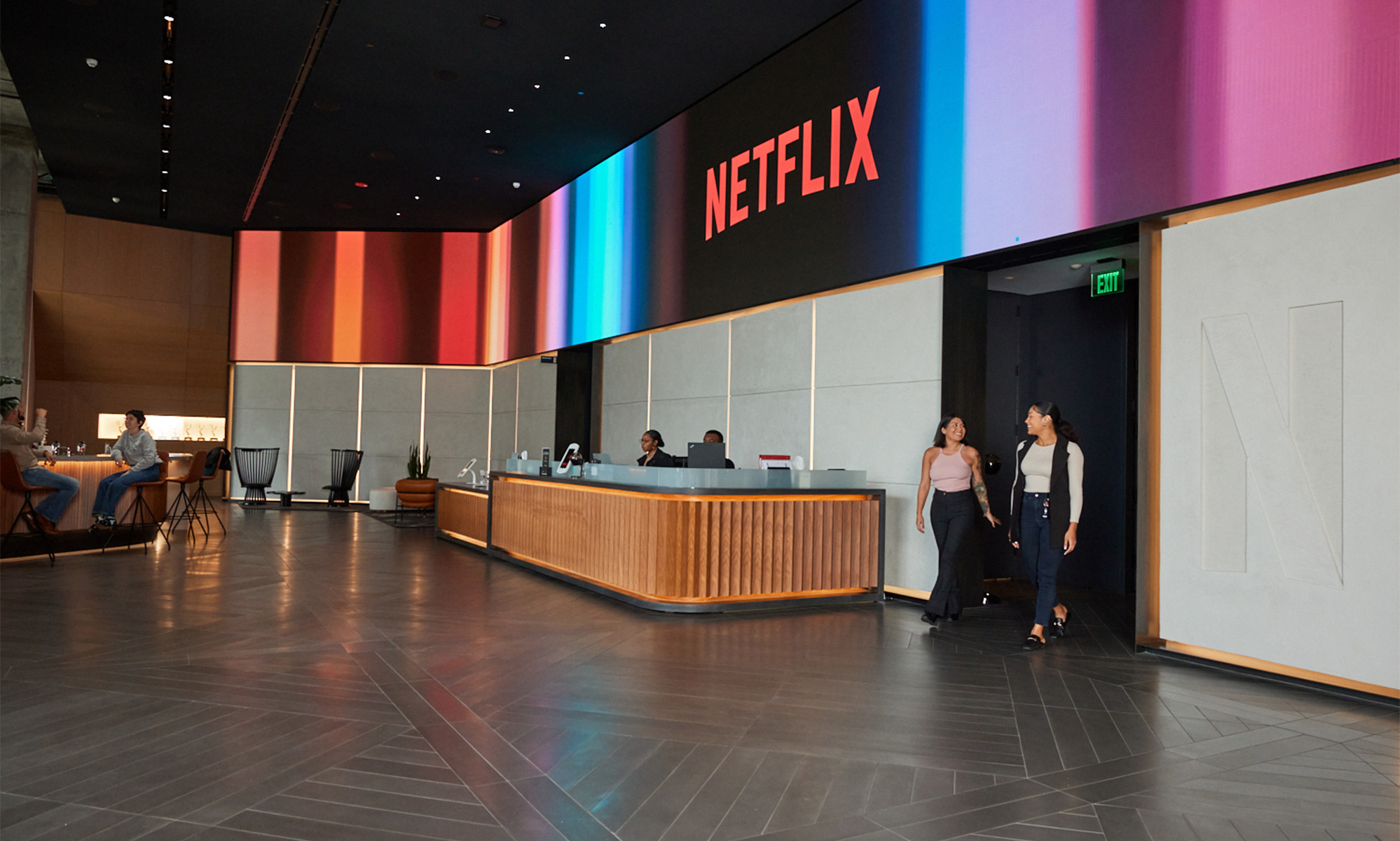Comcast (CMCSA 0.23%) and Netflix (NFLX 0.56%) may do business with each other, but the two companies seem perpetually at war.
The rivals have battled over the speed at which the Internet service provider delivers the streaming service as well as the fees Netflix now pays to ensure its customers have a decent experience when streaming over Comcast lines. Now, Netflix is working hard to stop Comcast's proposed $45 billion merger with Time Warner Cable (NYSE: TWC).
That makes sense because one is a traditional cable company that is used to dictating business terms to customers and partners, while the other is seeking to disrupt that model.
Comcast not only controls the Internet and cable pipelines into a large group of American households, it owns an array of channels which produce content that it delivers. For years consumers who wanted TV needed Comcast (or whoever their local cable company is) which is a pretty fabulous business model.
Netflix makes Comcast and cable less necessary. The streaming service represents a clear threat to the traditional cable model.
How big would the merged company be?
A combined Comcast/Time Warner Cable would control 33% of American pay TV households. The merged companies would also serve 36% of all broadband customers in the U.S. (not counting the small number of people with satellite broadband), according to an article in The Wall Street Journal.
That would be bad news for Netflix because it would give one of its chief rivals even more control over its access to customers. To stop that, executives from the streaming service have been working hard to convince the Federal Communications Commission that Comcast buying Time Warner Cable is not only bad for Netflix, it's bad for American consumers.
What is Netflix saying?
Netflix has filed a Petition to Deny with the FCC in opposition of the merger. In the document, Netflix makes it very clear that it feels the merger represents a threat to the way the Internet works currently, saying that the merged company would "turn a consumer's Internet experience into something that more closely resembles cable television." The petition does not hide that Netflix is worried about its own business as well:
The combined entity would have the incentive and ability -- through access fees charged at interconnection points and by other means -- to harm Internet companies, such as online video distributors ("OVDs"), which Applicants [Comcast and Time Warner Cable] view as competitors.
Netflix cites an earlier example where federal regulators blocked the merger of AT&T (T +0.34%) and MediaOne back in 2000, a merger which would have created a company that would have controlled nearly 40% of the nation's broadband households. The petition also makes it clear that Netflix believes Comcast has taken steps to harm its business:
Applicants [Comcast and Time Warner Cable] are clear that they see OVDs as a threat to their core video business. Comcast already has acted to lessen that threat by using its control over interconnection pathways to allow its own customers' access to Netflix content to degrade until Netflix paid Comcast a terminating access fee.
Short of saying that the merger would hurt mom, apple pie, and baseball, Netflix does everything it can to argue against it in the 253-page document.
How have Comcast and Time Warner Cable responded?
Not surprisingly, Comcast and by extension Time Warner Cable have a different take on the proposed merger and have argued that it will be good for consumers. The company formally responded to the FCC and posted a statement on its website that makes it clear that it thinks Netflix is only acting to better its business:
Netflix is free to express its opinions. But they should be factually based. And Netflix should be transparent that its opinion is not about protecting the consumer or about Net Neutrality. Rather, it's about improving Netflix's business model by shifting costs that it has always borne to all users of the Internet and not just to Netflix customers.
Comcast also said that Netflix's opinion is "unfounded" because the issues raised apply "to the industry as a whole, which is why the FCC has said that it will look at interconnection issues. Netflix's arguments are not transaction specific."
What will the FCC do?
FCC Chairman Tom Wheeler may have a background as a lobbyist for the cable industry, but in recent months he has attempted to at least look impartial when handling issues including the merger. That may well be because of increased public scrutiny partially caused by John Oliver's epic piece on net neutrality.
Source: YouTube
In this case, the FCC, which has been more lenient on mergers in recent years, is likely to approve the deal with some major contingencies. Those contingencies could be tied into the ongoing net neutrality debate and may give Netflix what it wants.
It's hard to make a strong case against the merger when changing technology gives consumers in most of the country access to multiple cable and Internet providers. That number is only likely to go up in the future as new services and technologies emerge.
The proposed merger would give Time Warner major leverage over Netflix and that should be addressed, but it's hard to see how the merger hurts consumers any more than having to deal with one of the two individually does already. The FCC needs to, and likely will, take steps to ensure that consumers will have acceptable access to streaming services, or at least the same access they did pre-merger, but other than that the deal will likely be approved.








